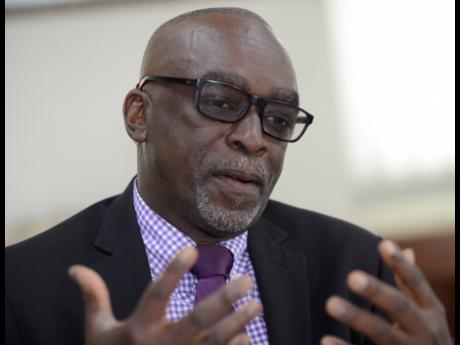Health sector, PAHO partner to train mental health helpers
Professor Wendel Abel, consultant psychiatrist at The University of the West Indies (UWI), Mona, has welcomed a collaboration between the Pan American Health Organisation (PAHO) and the local healthcare sector to increase mental health literacy for persons at the community level.
The initiative involves training and engaging community members to assist in the care of persons with mental health issues.
Abel said the intervention was commendable especially as it is being implemented after the (COVID-19) pandemic, and a significant spike in the number of persons including children and adolescents presenting with mental health problems.
“It is also timely as we have high levels of physical, emotional and sexual trauma which often lead to major mental health issues. Programmes like these are also important to promote mental and physical well-being and to point persons to critical resources in the community. The health sector and PAHO must be lauded for this initiative,” he said.
Abel says Jamaica has come a long way in regard to awareness of mental health issues and attitudes towards mental illness, but says it is unfortunate that there are still high levels of stigma and discrimination.
This, he points out, is influenced by cultural beliefs and sometimes perception shaped by religious beliefs where some still see mental illness as a curse or demon possession, while there are persons who have a genuine fear of persons with mental illness.
It is for this reason he stressed the importance of implementing programmes to improve mental health literacy, increasing awareness and reducing stigma and discrimination.
MENTAL HEALTH
Andre Wellington, dean of discipline at Alston High School, is one of two persons selected by the Southern Regional Health Authority in conjunction with PAHO to serve as trainers for the group of mental health helpers in the Clarendon and Manchester area. The other selectee is Dr Hope Iballaboh, an experienced psychiatrist.
Wellington, who at one point also struggled with mental health issues, said being chosen as a member of the programme dubbed PM – Problem Management, was a great way to enhance the concept of community mental health.
“Our mandate will be to train and empower community members to serve as ‘helpers’ to assist persons in the communities who may be having adverse life experiences or may be in need of advice to seek mental health services,” Wellington shared.
The group is currently being trained by a cadre of trainers from the Ministry of Health and Wellness.
He expressed the hope that more individuals would offer to serve as PM trainers and helpers.
GREAT INITIATIVE
“This I think is a bold move by the health ministry to better deal with mental health issues at the community level. Even though I am pressed for time, given my busy schedule, I could not say no to a great initiative that will certainly impact the community of the mentally ill in a positive and profound way,” he notes.
In January 2020, Pan American Health Organisation United Nations Development Programme published an analysis of the costs and benefits of scaling up coverage of selected clinical interventions related to anxiety, depression, and psychosis that are part of the WHO Mental Health Gap Action Programme (mhGAP).
The report highlighted that in Jamaica, the burden of mental illness is considerable and is predicted to cause US$2.76 billion in lost economic output from 2015-2030, a higher economic burden than from any single category of non-communicable disease conditions except cardiovascular disease.
It also informed that many mental health problems and illnesses begin in childhood or adolescence, making investments in addressing mental health important to improve quality of life from childhood through older age.
The report showed that over time, in Jamaica, there has been a rise in the number of individuals seeking treatment for mental illness. In 2013 and 2014, there were approximately 90,000 visits to public health facilities for mental health treatment annually. Visits increased by about 20 per cent per year in the following two years, with nearly 108,000 visits in 2015 and 132,000 in 2016.
October 10 is celebrated as World Mental Health Day.

